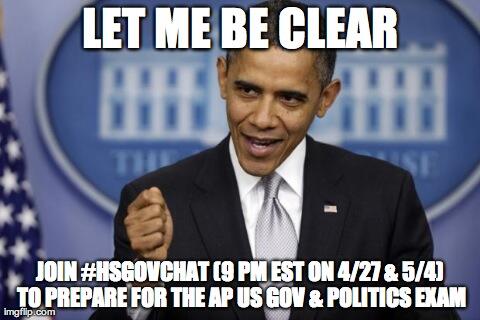China’s Legislature Votes to Toughen Environmental Protection Law
The Chinese legislature decided Thursday to revise the country’s environmental protection law…
The legal revisions were approved Thursday by the National People’s Congress [NPC], a legislative body that generally agrees to policies already made by Communist Party leaders. Li Keqiang, China’s prime minister, has said that China is ready to “declare war” on pollution…
You know what's misleading about that account.
The New York Times reporter makes it sound as if the NPC is meeting in Beijing like Parliament does in London, and on Thursday it passed important revisions to environmental protection legislation.
What's wrong with that impression? If you were asked that question on an exam, what would your answer be?
Here's the account by the Chinese news agency Xinhua:
China's NPC adopts revised Environmental Protection Law
The Standing Committee of China's National People's Congress (NPC), the country's top legislature, has voted to adopt revisions to the Environmental Protection Law…
The bill was passed with a solid majority of votes…
And the difference between the two accounts?
You should recognize right away that the ±3000 delegates to the NPC are not in session at this time of year. They meet earlier in the spring (March 5-15 in 2014).
You should also know about how political bodies in China regularly have "executive" committees to do the work of larger groups and ask for approval for those actions later. The Communist Party has a Politburo and within that a Standing Committee.
In a system of democratic centralism, policy decisions are made at the very top of the system by very small groups of people. The Party politburo is a group of about 25; the Party Standing Committee has 7 members. Similarly, the 3000-member NPC (meeting yearly) has a standing committee of about 150 (meeting every other month) and the chairman and about 14 vice-chairmen (probably meet weekly or as needed) serve as the executive committee for the NPC Standing Committee.
So, as with the care you must take with Nigerian journalists who carelessly toss around terms like government and regime, we must take care, even with respected journalists like those who write for the New York Times, when they describe political processes in terms that sound familiar. Comparative politics is not easy to get right.
_______________________
Facial hair and subversion
The news about beards is probably only one bit in a long list of things the Chinese government wants to know about, but it makes a good headline.
China Offers Rewards for Beard Informants in Muslim-Majority Area
Authorities in western China’s restive, Muslim-majority Xinjiang Uighur Autonomous Region are offering rewards to locals who inform on their neighbors for “wearing beards,” government-controlled media reported this week. Islamic liturgy recommends that Muslim men wear beards.
 In recent months, local officials have tightened religious restrictions on
Xinjiang’s ethnic Uighurs, in response to a series of armed attacks that were
allegedly perpetrated by Uighur separatists…
In recent months, local officials have tightened religious restrictions on
Xinjiang’s ethnic Uighurs, in response to a series of armed attacks that were
allegedly perpetrated by Uighur separatists… Informants in parts of Xinjiang’s Aksu prefecture, an epicenter of the region’s ethnic tensions, can earn anywhere from $8 to $8,000 for reporting their neighbors’ illegal religious or “separatist activity” — which can now include facial hair, according to Chinese newspaper The Global Times.
"That's a lot of money for Uighurs in the south [of the region]. There they are very poor. This is an incentive to betray their fellow Uighurs to get some financial gain," Alim Seytoff, spokesman for the Uighur rights advocacy group World Uyghur Congress (WUC), told Al Jazeera…
Local authorities have attempted to suppress various ostensible signs of Muslim religiosity in the past. But Nicholas Bequelin, a researcher with Human Rights Watch, said this appeared to be first time officials are comfortable enough with such measures to allow them to be reported in an English-language publication geared toward foreigners…








